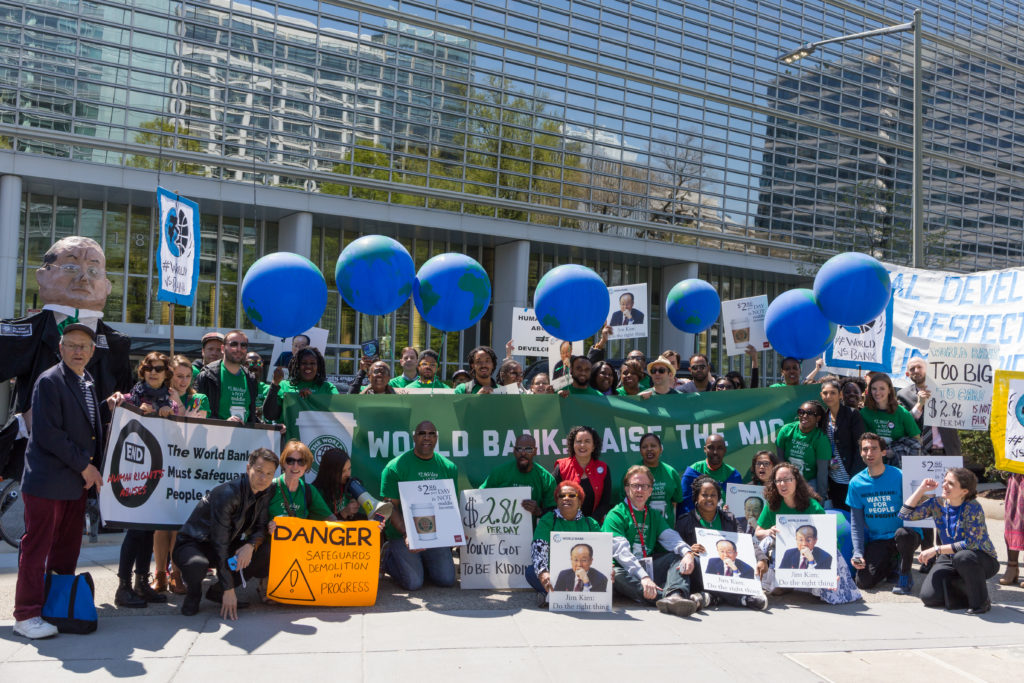By Josephine Ong, Intern
After three decades using the World Bank’s existing environmental and social safeguard policies, the Bank is in the final stages of overhauling its safeguard policy. Recent drafts of the policy indicate it will shift environmental and social accountability onto borrower countries and away from the Bank itself.
Civil society and affected communities around the globe have criticized the existing safeguard policy for having profoundly negative social and environmental impacts in the communities the World Bank claims to help and support. The revision of the World Bank’s safeguard policy then, was an opportunity to create clear and effective standards that guarantee compliance with international law to protect communities and the environment in the future. However, the safeguard review process has been riddled with disappointment and concerns that instead of improving its social and environmental safeguard policies to better protect people and the planet (and achieving better outcomes for all), the Bank has instead diluted the existing safeguards.
In light of this threat, CIEL has been working with partners around the world to strengthen the draft policy and advocate that decision makers do the same.

We’ve made diverse allies and partners, including influential voices on Capital Hill, within US Treasury, World Bank Executive Directors, and the New York Times. This week, US Congressional Representatives Maxine Walters and Gwen Moore of the House Financial Services Committee sent a letter to the US Treasury that calls for the Bank to adopt international environmental and social standards in its safeguards policies. The letter states that if the Bank fails to uphold these standards, “…it may lead to a situation in Congress where it will become increasingly difficult to garner the votes necessary to continue robust U.S. support for the World Bank.”
This letter provides yet further incentive (and a threat) that the Bank adopts strong and effective environmental and social standards in accordance with international law.
As the letter argues, “[t]he World Bank should be the leader in adopting, upholding and implementing the highest international environmental and social standards in the activities that it finances, not undermine those adopted by other [multilateral development banks] MDBs.” If the Bank is truly committed to development that improves lives, it must prioritize human rights and environmental protection and be accountable for its projects’ negative impacts.
Originally posted on June 29, 2016
